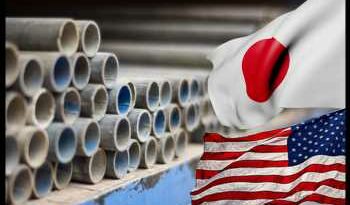Bill Ralston: 2021 is not the year of salvation
OPINION:
We ended the dark year of 2020 saying, “Thank God that’s over!” I hate to be a joy germ, but it’s not over yet: 2021 is likely to be a long hard haul back to some kind of normality for the country, the economy and you.
I really hate to deflate our optimistic summer season, but the best guess of those in the know about Covid-19 is that it will be two to three years before the peril dissipates internationally. Groan.
Okay, the Government is planning to roll out a vaccine in the second quarter of the year, which means April, May, June. Autumn. It will first go to border workers, medical staff, and those living or working in managed care homes, eventually probably to the over-65s in general, and then, hopefully by the end of 2021, to all the rest of us who want it.
Winter appears to be interposing on that timeline, which overseas experience tells us is a period of much heightened risk of infection.
Despite all the good work done at the border and in managed isolation, there is always a considerable risk of the reinfection of the ark that is New Zealand. If so, this would mean more lockdowns, more masks and social distancing, and more damned interminable washing of hands.
God, I’m depressing. We need to get, say, 90 per cent of the country inoculated before we stand a chance of developing herd immunity to the cursed virus. I have to take into account that 10 per cent of the country are likely to be loopy anti-vaxxers or loony deniers of the existence of Covid-19, plus there is also a fair chunk of the idle “Wot, me worry?” kind of folk who will never get a shot because they can’t be buggered to do so. We’ll have to carry those indolent sods with our herd immunity.
Border dilemmas
Still, until we get to that stage, our borders will largely remain shut and that is a problem. A New Zealand woman recently wrote to me with a classic illustration of the dilemma. She has had cancer but appears to be in recovery; she is old enough to be on the pension but has few savings. Her husband is resident in the nation of his birth, a Third World country, while she is stuck here.
They have not seen each other for a considerable time, and according to her, he is suffering anxiety issues because of the enforced separation. She could travel to see him but cannot pay the $3000 or so required to go into managed isolation when she returns here. She needs to come back within six months to retain their principal source of income, the meagre pension.
She says she has referred her problem to the Government and its myriad departments but receives only standard responses saying her letter has been sent on to yet another area of the bureaucracy where it disappears into the vortex of administrative silence.
The best I can advise is that she go to her local MP and sit in his or her electorate office until such time as the parliamentarian can come up with a solution.
It is not just such human cost of our international isolation but also the economic blow we are suffering in slow motion. We have no tourists from overseas, formerly a significant source of income for the country. The international student industry is effectively dead. Our horticultural industry is being strangled because it cannot access anywhere near the number of pickers it requires to bring in the harvest.
The Government tells growers to use unemployed Kiwis before trying to argue to get more Recognised Seasonal Employer workers in from abroad. There is no sign of the dole queue shortening much as a result, despite government incentives to the unemployed to go pick apples or grapes. Orchardists claim much of the coming crop will be left to rot on the ground.
If you’re shrugging your shoulders about that, reflect on the upward price effect on your supermarket getting a very reduced supply of fruit.
Growing debt
Meanwhile, over the next year, we will, as a country, continue to borrow to stave off the worst economic effects of the crisis. Rightfully so. Except that by the 2023/24 fiscal year, net core Crown debt will peak at $174 billion or 45.6 per cent of our GDP. It will require a careful balancing act by the Government to ensure there is a limited effect on interest rates and inflation as a result.
The point of all this is that 2021 is not the year of salvation. It will probably, at best, be an improvement on 2020, but there is a plethora of problems to overcome and avoid.
Still – and here’s the good news – we are infinitely better off than the UK, continental Europe and the US. British Prime Minister Boris Johnson has been forced by rocketing out-of-control infection rates into announcing a long period of tight lockdown, school closures and, for the next few weeks, the loss of life as the British have known it.
Thanks to President Donald Trump, the US has plummeted into an anarchic mess, leaving President-elect Joe Biden and Vice President-elect Kamala Harris an appalling situation to deal with, let alone having to come to grips with the Covid-19 plague there that is killing so many people.
In terms of both countries, as a parent I would be telling my expat kids to “get the hell out of there!” The problem, as I discovered talking to my geologist son working in Canada, is that ain’t so easy. To avoid overburdening our managed isolation facilities, they would have to book a date here to check into quarantine. But air services are generally unreliable, many have been cancelled, and some airlines that are flying today won’t be doing so tomorrow. For example, those few flights from Vancouver still operating seem to take about 55 hours, transiting through three or four hubs, and are liable to have delays or even cancellation while in transit. Great. Imagine trying to make it in time for your quarantine booking to avoid it being cancelled.
Still, for those of us here in the ark, we are, for the moment, safe. It’s just that it may take a while before they let us out, two by two.
Source: Read Full Article

/cloudfront-ap-southeast-2.images.arcpublishing.com/nzme/MC7FO3YWHJHOFW3R23ASHQVBNA.jpg)
/cloudfront-ap-southeast-2.images.arcpublishing.com/nzme/M365YI6FH4QQ7IQFBFDIHXLLSE.jpg)

